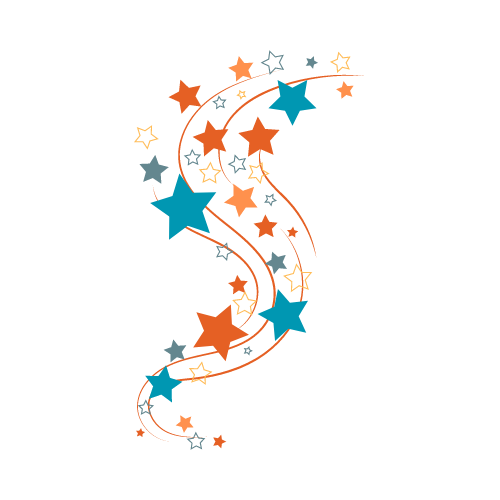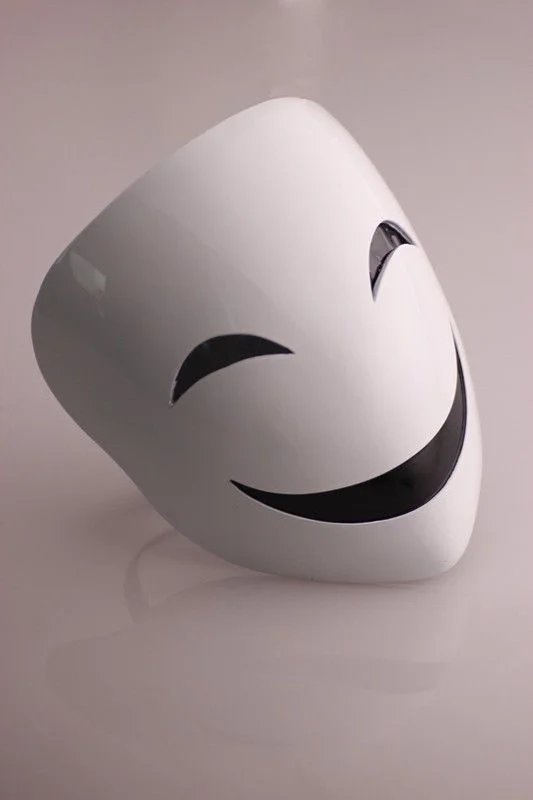Imposter Syndrome: The Masks We Wear.
Years ago, I stood outside of a conference room, my hand lightly resting on the door, afraid to go in. I was an adjunct. I wasn’t “real” faculty. The conference inside was called Doing Diversity for the Common Good. It would be the afternoon that would most significantly shape the trajectory of my career - and I nearly did not enter the room.
This past semester, I volunteered to be on a committee at work, to represent my department and our students. I was the only professional at the table that did not hold a terminal degree. I was the only one that was not a faculty member. The only publication I have to my credit is an essay that I wrote in graduate school that was a finalist in a contest sponsored by the American Counseling Association. I felt out of my depth. At our early committee meetings I sat largely silent.
These are just a couple examples of my particular manifestation of Imposter Syndrome, which is reported by nearly 40% of all professionals. While it can affect anyone, it is especially prevalent in women and people from marginalized populations, and is described by Psychology Today as “a pattern of behavior where people doubt their accomplishments and have a persistent, often internalized fear of being exposed as a fraud.” It’s the struggle to accept and own how awesome you actually are. It can be connected to anxiety and self-imposed limiting behaviors in academic and professional spaces.
I grew up in a working class community. I didn’t really understand what that meant until I got to college and met people from more affluent areas of New York State.
I was a first generation college student. I’m the only person in my immediate family to hold a bachelor’s degree and the only person in my extended family to hold a master’s degree. Most of my family members have never lived very far from their birth places. For most of my life I lived, literally, on the wrong side of the tracks. Those are my roots.
I am proud of the life I have lived and the path I have taken. I have excelled academically and I am engaged in a vocation that is meaningful, makes a difference, and feels fulfilling. The small town, working class, first gen college graduate is never far away, though. Those roots are frequently outstretched and tug on my ankle from time to time - like when I am trying to walk into a conference full of professors, or sit at a table of respected, published academics.
I talk about this now, here, publicly, because I know I’m not alone. The statistics bear that out, but also the conversations I have with my peers, colleagues, and students, who share with me their struggles with this part of their identity. How many don’t walk through that door, into that room? What does that cost us in the long run?
My experiences are my experiences, and they are largely confined to working in higher education. The truth is though imposter syndrome can impact anyone in any setting - any time you question whether you belong, or feel like “if they only knew…”
I would love it if you felt comfortable sharing any experiences you have had with imposter syndrome. Write to me at solavisholistic@gmail.com and I will feature your story in an upcoming newsletter!
For what it’s worth, the day of that conference, as I stood in the hall with my hand on the door, just as I was about a turn and walk away a friend and a colleague walked up to me. “You belong in there. Go.” So I did. It changed my entire career.
And more recently, when I sat at that table, I took a deep breath. I remembered who I was there to represent. I reminded myself that I belonged there. I found my voice. Earlier this week, I was asked to remain working with this committee into the next academic year. “You brought a valuable perspective to the group that we appreciated”, is what the chair told me.
The imposter was all in my head.
Did you know?
In a 2018 article on Time.com the work of Valerie Young is referenced. Young is considered a preeminent source on Imposter Syndrome and she identified five specific types:
Perfectionists set impossibly high standards for themselves and perceive any error or mistake as a failure and sign of their own incompetence.
Experts measure their competence based on “what” and “how much” they know or can do. They will frequently seek out new training or certifications in pursuit of expertise.
Natural Geniuses are attracted to tasks or learning experiences that come easily or naturally. If they struggle with learning something new, they will often feel like a failure or experience shame, and will likely avoid that activity.
Supermen/Superwomen will often cover up their insecurities through overloading on work-related tasks. They push themselves relentlessly in a quest to “measure up”. They may experience stress when they are not actively pursuing the next accomplishment.
Soloists equate asking for help with being a failure. They only feel successful if they’ve completed a job or task on their own and will frequently say they do not need anyone’s assistance.
Do any of these sound familiar? If so, what can you do about it?
A good first step is to be honest with yourself about your experience. When one of these thoughts arises for you, acknowledge it, but don’t engage it. What that means is, recognize that you are currently experiencing a doubt but that doesn’t mean it’s true. Reframe the thought in a way that allows you to move past it and continue on with the task at hand.
A Word With Walt.
Now that we’ve explored a bit about ways that we doubt or try to hide our true selves, let us shift gears to someone who was a master at celebrating the Self. Walt Whitman’s 200th birthday is later this month and on days that I need to be reminded of how glorious our very existence is, his is the voice I turn to. Let this be mantra to those who may need it:
I celebrate myself, and sing myself,
And what I assume you shall assume
For every atom belonging to me as good belongs to you.
-Song of Myself, 1855
I think heroic deeds were all conceiv’d in the open air, and all free
poems also,
I think I could stop here myself and do miracles,
I think whatever I shall meet on the road I shall like, and whoever
beholds me shall like me,
I think whoever I see must be happy.
—
I am larger, better than I thought,
I did not know I held so much goodness.
-Song of the Open Road, 1856




